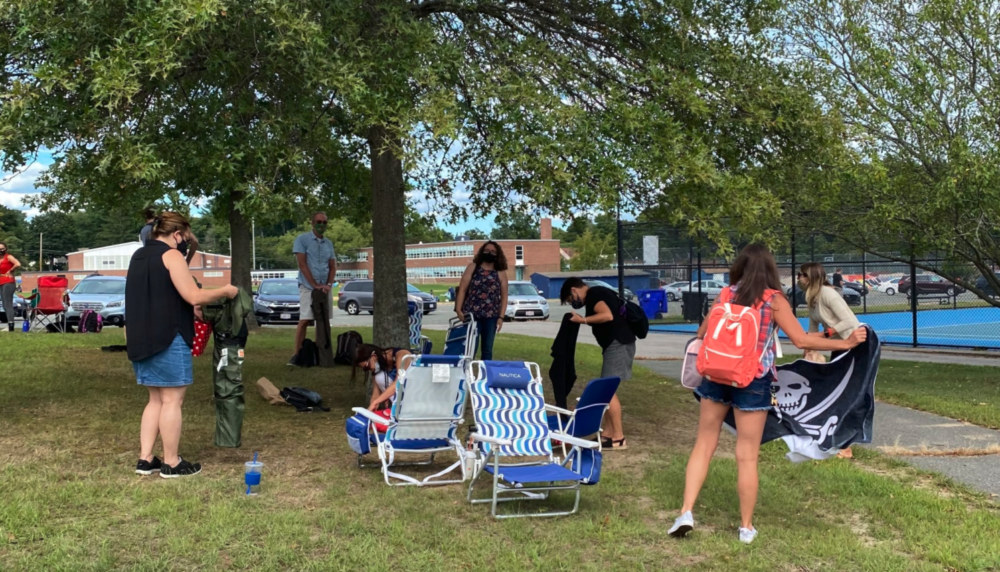Advertisement
Public Employees Press Right-To-Strike Legislation

Two of the leading progressive Democrats in the House joined with union officials, teachers and other public employees on Tuesday to push for the repeal of a state law that bans public sector workers from going on strike.
Rep. Mike Connolly and Rep. Erika Uyterhoeven testified to the Joint Committee on Labor about legislation they filed that would lift the ban on work stoppages for all public employees, including teachers, police and firefighters.
Uyterhoeven, of Somerville, called the withholding of labor a "fundamental human right," and Connolly, of Cambridge, said strikes, or even the threat of going on strike, are an "indispensable part of the collective bargaining process."
Supporters of the bill (H 1946), which has five co-sponsors, said 11 or 12 other states have eliminated their bans on public employee work stoppages. While the law against public employee strikes was meant to guard against the disruption of critical services, Connolly said the COVID-19 pandemic has proven that many workers in the private sector with the right to strike also perform indispensable roles in communities.
"It's not fair to turn to a public educator or a firefighter and say to that worker they shouldn't be afforded the same fundamental rights in the workplace as all workers," Connolly said.
Dozens of labor leaders, teachers and other union workers turned up to testify remotely in support of the bill on Tuesday at a hearing focused on employee rights and benefits.
State law stipulates that "no public employee or employee organization shall engage in a strike, and no public employee or employee organization shall induce, encourage or condone any strike, work stoppage, slowdown or withholding of services by such public employees."
Massachusetts Teachers Association President Merrie Najimy said repealing that law would "provide equilibrium and fairness to our collective bargaining process."
"With the onset of COVID, health and safety of educators, students and families is an unfortunate and an additional reason we must have the right to strike," Najimy said.
During the COVID-19 pandemic, teachers in Andover were determined by the Commonwealth Employee Relations Board to have gone on an illegal strike when they refused to enter the school building for professional development ahead of the start of the 2020 school year.
Instead, the teachers set up with laptops in the parking lot of the school to protest what they considered to be poor and unsafe ventilation in the school and attempted to participate in the training from outside.
Gov. Charlie Baker at the time said he supported the decision to force teachers to return to work inside the school building, and Najimy said the episode highlighted the importance of the Connolly-Uyterhoeven bill.
"Last year in too many districts educators and students were compelled to put their health, safety, and, yes, even their lives on the line by being forced to return to their schools in spite of poor ventilation and other safety concerns," Najimy said. "This was something that was never expected. They had no recourse."
Many who testified noted the gains made by workers over centuries through the use of strikes, including the famous "Bread and Roses" strike by women and immigrant workers at a textile mill in Lawrence.
Others said that teachers in other states have been able to use work stoppages to win concessions for students in their contracts, such as more green spaces.
Sen. Becca Rausch, a Needham Democrat, testified in support of allowing teachers to strike, but offered up her own bill as a potential compromise.
Rausch's bill would amend state law to allow public sector workers to strike under what she described as "limited circumstances," including a failure by management to bargain in good faith, and it would not apply to police, fire protection employees or jail, prison or other correctional facility workers.